GMAO Takes Hold in the Windy City
01.31.2023


Representatives from NASA’s Global Modeling and Assimilation Office (GMAO) presented at the American Geophysical Union (AGU) Fall Meeting 2022, held in Chicago, Illinois. This is the first time AGU has been held in what’s known as the Windy City. Thankfully, mid-December did not bring the extreme cold and snow with which the city can be associated; in fact, it was relatively mild.
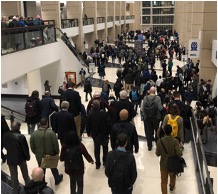
The theme for AGU Fall 2022 was Science Leads the Future. The event brought together more than 25,000 participants from over 100 countries. As in recent years, AGU provided a virtual option for both presenters and attendees.
The GMAO has a strong presence, with presentation and poster topics ranging from the uncertainty in atmospheric river detection to the global burden of tropospheric ozone. The list of the scheduled oral and poster presentations by GMAO members is below. PDF versions of the posters can be found at https://gmao.gsfc.nasa.gov/pubs/index.php?sel=posters&yr=2022
Presentations:
Allison Collow - Uncertainty in Atmospheric River Detection and Atmospheric River Induced Precipitation due to Reanalysis Selection
Larry Coy - The generation of mixing across the stratospheric polar vortex edge by breaking gravity waves
Amin Dezfuli - Potential Impacts of Climate Change on Future Transboundary Water Conflicts in the Middle East
Emma Knowland - GEOS Constituent Data Assimilation beyond Aura MLS: Assimilating NASA SAGE III/ISS profiles of stratospheric water vapor and ozone
Jana Kolassa - Assessing the Impact of SMAP Data Assimilation on Tropical Cyclone Landfall Predictions
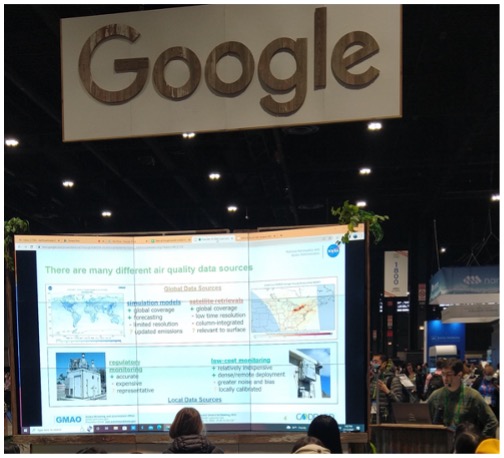
Randy Koster - The Simulation and Subseasonal Forecasting of Hydrological Variables: Insights from a Simple Water Balance Model
Carl Malings - Towards a Flexible Data Fusion Tool for Air Quality Estimation and Forecasting with a Global Scope in Google Earth Engine
Isaac Moradi - Community Radiative Transfer Model: Implementing a new cloud scattering database and developing the forward radar module
Lesley Ott - Low latency flux and concentration datasets in support of greenhouse gas monitoring based on NASA’s GEOS modeling and data
Posters:
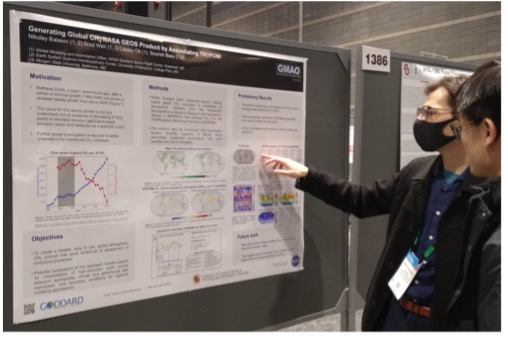
Nikolay Balashov - Generating a global CH4 product by assimilating TROPOMI retrievals into NASA's GEOS
Allison Collow - Excessive Subsidence of the Southeast Atlantic Biomass Burning Aerosol Plume in the NASA Goddard Earth Observing System (GEOS) Model
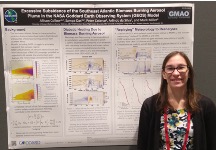
Natalie Thomas - Effect of Baseline Period on Quantification of Climate Extremes over the United States
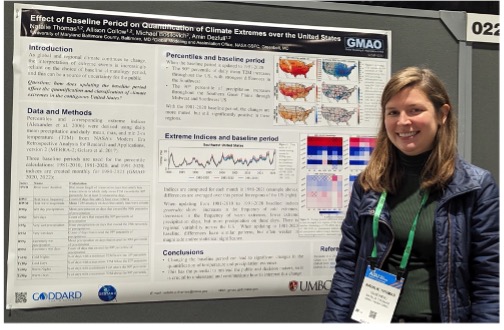
- Responsible NASA Official :
Steven Pawson - Web Curator:
Bennett Erdman
- Privacy Policy & Important Notices
- NASA's Accessibility Statement
- Contact Us
- Page Last Updated: 02/5/2023

